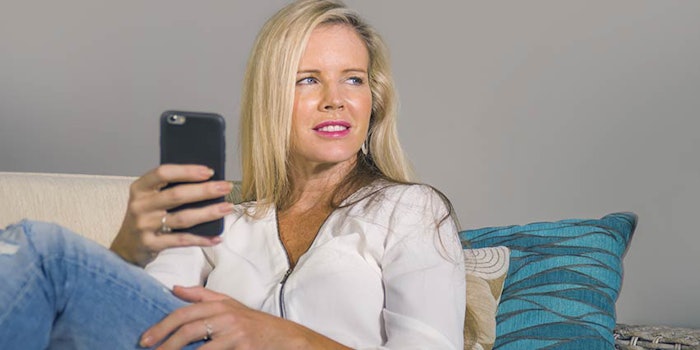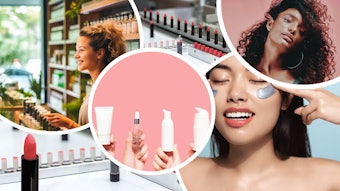
Millennials (and, soon, Gen Z) have become one of the most talked about and well-served demographics in the beauty industry. But no longer are beauty brands keeping their eyes solely on youngsters. There’s another beauty consumer pining for attention: Generation X.
Meet Gen X
Aged 38 to 53, Gen X is more commonly known as the “sandwich generation,” having to support individuals from either side of their generation (parents and kids). So, while the women of Gen X have a healthy disposable income, they often put others first and are often left feeling overlooked. But they are a force to be reckoned with.
Pew Research reports that Gen X makes up the second-largest workforce in the United States and, according to Target Marketing, 96% of this demographic have money left over after paying bills.
Previously: What is 'Memory Age' and Why Does it Matter to Gen X?
Research plays a big role when they make a purchase, and social media features heavily in the process. According to Sprout Social, half of Gen Xers in the United States follow a brand on social media before making a purchase, and 70% are likely to purchase something from a brand they follow online.
Gen X consumers aren’t just looking at recommendations, they want real proof that a product works and are drawn to brands that align with their wider lifestyle choices and principles.
A Positive Approach to Aging
When it comes to aging, Gen X is looking for preventative solutions and want to know what is going to add value to their busy lives.
They also have very clear ideas on what they’re looking for from brands, and how they wish to be communicated to. In particular, they don’t want to dwell on the negative connotations attached to age.
Half of Gen Xers in the United States follow a brand on social media before making a purchase, and 70% are likely to purchase something from a brand they follow online.
Using outdated terminology and inappropriate ambassadors can have damaging effects on a brand when it comes to messaging around aging. When brands get it wrong, Gen X consumers are left feeling misunderstood and overlooked.
It’s essential for brands to align themselves with age-appropriate ambassadors. Philosophy’s tie-up with actress Ellen Pompeo is an example of this done well at more of a celebrity level. The brand’s “Welcome to the age of cool” advert used humour to talk about age, picking fun at the idea that women should be slowing down or avoiding anything too exerting.
In the United Kingdom, Neal’s Yard Remedies has launched a new campaign called “Age Well Revolution,” geared toward changing the way age is portrayed in society. The campaign features six British women over the age of 40 who embody the core value of self-love, discussing what age is to them and how they feel about it.
It’s not just about getting creative concepts and ambassadors right, but also selecting appropriate marketing language, taking a softer approach and avoiding terms such as “anti-aging."
Both of these campaigns are relatable, feature appropriate spokespeople and cover positive discussion points. They also challenge any stigma attached to age.
And it’s not just about getting creative concepts and ambassadors right, but also selecting appropriate marketing language, taking a softer approach and avoiding terms such as “anti-aging,” which the industry has already started to forgo, and instead focusing on prevention.
Kiehl’s is leading the way when it comes to changing the aging message. Two more recent launches—the Pure Vitality Skin Renewing Cream and Glow Formula Skin Hydrator—focus on improving skin texture, rather than tackling signs of aging such as fine lines and wrinkles.
Meanwhile B-Glowing Beauty, a luxury brand geared toward women over 35, focuses on language such as “age embracing” and “rule-breaking,” encouraging women to celebrate their changes, not cover them up.
Targeted Concerns
As well as looking for preventative treatments for aging-related needs, we’re also seeing this cohort seeking products that address other targeted issues, such as adult acne, dark spots and pigmentation, and improve tone and glow.
Deciem’s The Ordinary, for instance, is educating customers about age-prevention regimes, introducing the importance of using retinol (vitamin A) products via low-percentage formulas that are easy to incorporate into their routines.
54% of women older than age 25 have some facial acne.
Acne also features here. Once a teenage concern, the skin condition is now affecting women long after puberty. Diminished collagen and elastin production, increased exposure to the sun and rising stress levels mean Gen X consumers with adult acne require different products than younger sufferers. According to the Journal of American Academy of Dermatology, 54% of women older than age 25 have some facial acne.
Allies of Skin’s 1A Overnight Mask has been shown to reduce acne lesions by 67% in 28 days, according to the brand. The mask also deeply hydrates and brightens skin to reverse the daily damage caused by stress and pollution.
Time to Focus on Gen X
Talking to Gen X on its level is vital to positively engaging these consumers. Make them feel empowered, put them first, acknowledge their concerns and arm them with products that target specific issues while preventing long-term damage.
Many brands have yet to know and appreciate Gen X—it’s time that changed.











